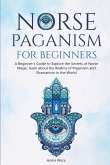Benedictine spirituality is simple and down to earth. Not only does the Benedictine lifestyle fit well within the walls of the monastery, its interpretation of life is also suitable to other forms of society. In The Rule of Benedict for Beginners, Wil Derkse reveals how elements from Benedictine spirituality and the Benedictine lifestyle may be fruitful outside the monastery to strengthen the quality of societal living and working. The Rule of Benedict for Beginners is a useful source of life orientation and lifestyle for those interested in living by the Rule. It applies the monastic vows to life within organizations and examines the valuable elements of Benedictine leadership and Benedictine time management. Chapter one sketches Derkse's own acquaintance with the Benedictine lifestyle. Chapter two examines the basic patterns of Benedictine spirituality in order to translate these patterns into nonmonastic contexts. Inspired leadership, listening decision-making, fruitfully prospering human resources, and sensible time management are themes in the remaining chapters. Chapters in Part I: A First Acquaintance with Benedictine Spirituality are "A lesson from the Imagery of Hildegard's Abbey in Eibingen," "What I Learned Through My Own Acquaintance with Benedictine Life," and "Growing Toward the Oblature." Chapters in Part II: Basic Patterns of Benedictine Spirituality and First Translation to Nonmonastic Contexts are "The Benedictine Way of Life: Listening Attentively to Gain Results," "The Benedictine Vows: Directed Toward Growth and Liberation," and "Additional Aspects of the Benedictine Art of Listening." Chapters in Part III: Benedictine Leadership: Stimulating People Toward Growth are "Leadership Demands a Special Talent for Listening," "The Person of the Abbot," and "The Person of the Cellarer: 'A Man For all Seasons.'" Chapters in Part IV: Benedictine Time Management: "A Full Agenda, But Never Busy," "Living a Wholesome Rhythm," and "'Bearing Fruit in Season.'" Wil Derkse is an oblate of the Benedictine St. Willibrord's Abbey in Doetinchem, the Netherlands. He occupies the Andreas van Melsen Chair in Science, Society and Worldviews at the Catholic University of Nijmegen, the Netherlands.
Hinweis: Dieser Artikel kann nur an eine deutsche Lieferadresse ausgeliefert werden.
Hinweis: Dieser Artikel kann nur an eine deutsche Lieferadresse ausgeliefert werden.








